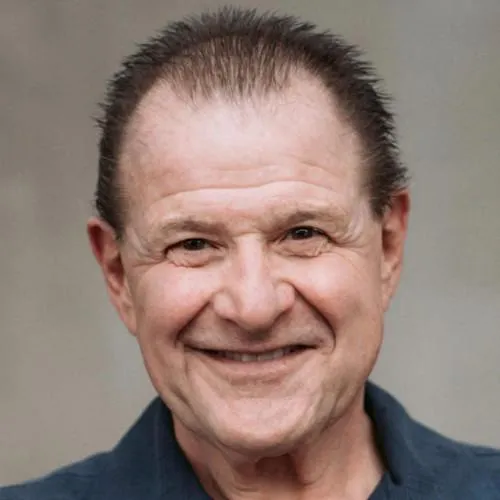The Human View™ Blog

The Truth of Well-Being Will Set Us Free
Yuval Harari, the acclaimed author of Sapiens, offers an important observation: information isn't truth. Truth, he notes, is a precious commodity, requiring effort, resources, and a tolerance for complexity. He goes on to say, "It’s very naïve to think that if we just flood the world with more and more information, the truth will float up. It won't. It will sink to the bottom."
It's easier to be swept away by the tide of misinformation, especially when charismatic influencers twist narratives to fit their agenda. This distortion is not limited to religious texts or political debates, it seeps into how we view and approach well-being, too.
Flooding the zone
We're bombarded with health information – diet fads, miracle cures, conflicting scientific studies. This deluge can be overwhelming, leading to confusion and inaction. Just like those medieval commentators who warped the Sermon on the Mount to say that what Jesus meant when he preached love and compassion is that we should burn heretics at the stake, we too can fall prey to misinterpreting the "truth" of well-being.
So, how do we navigate this complex landscape and uncover the truth of well-being? It starts by recognizing that critical difference between information and truth, and applying that realization to align with our own journey towards self-actualization, as described by Maslow's Hierarchy.

The DIKWM progression
Imagine a pyramid with five levels – Data, Information, Knowledge, Wisdom, and Mastery. People frequently ask, "What does the data say?" Well, it doesn't say anything! It must be organized into information, and only then can we begin to know something about what we're doing.
When we know something about what we're doing, and do it consistently over time, we begin to act more wisely, more often. Data is just the starting point, akin to our physiological needs – food, water, shelter. Information gives context to data, creating connections, much like our need for safety and security. Knowledge builds upon information, allowing us to understand the "why" behind the "what." This is where we start to form social bonds and seek belonging. Wisdom emerges when we apply knowledge with discernment and critical thinking – mirroring our need for esteem and self-respect. Finally, mastery represents the pinnacle – a deep, intuitive understanding born from experience and reflection - the realm of self-actualization.

Gaining next-level awareness
Most "wellness" content we encounter lingers at the data or information levels. We might know how many steps we need to take or which foods are considered "healthy," but true well-being, the kind that allows us to ascend Maslow's pyramid, demands we climb higher.
Real, lasting well-being requires honesty – a willingness to confront the truth of our current state, both individually and organizationally. This means acknowledging our less-than-ideal habits, the stressors we face, and the cultural norms that might be hindering our progress. It means moving past denial, judgment, and deflection – roadblocks on the path to sustainable change, impediments to fulfilling our higher needs. Osho once said, "The pain is not to make you suffer; the pain is to make you aware."
Just as a doctor needs an accurate diagnosis to treat a patient effectively, organizations must have a clear picture of their employees' well-being challenges to create an environment conducive to growth and self-actualization. Are long hours and unrealistic deadlines leading to burnout, preventing employees from feeling safe and secure? Is a culture of silence preventing employees from voicing their struggles, hindering a sense of belonging? Are there systemic issues creating barriers to healthy choices, impacting their basic physiological needs?
These are uncomfortable questions, but ignoring them will only perpetuate the cycle of "quick-fix" solutions that ultimately fail to address the root causes, leaving both individuals and the organization stuck at the lower tiers of well-being and fulfillment.

The power of intention
We can’t manifest significant weight loss unless we intend to. We don’t start going to the gym 3 or 4 days a week unless we first intend to. We don’t stop smoking without intending to. In short, the power of intention is the power to manifest into our lives exactly that which we choose.
Intention, however, can be tricky business. Conscious intention requires complete alignment of all aspects of being; simply knowing what we should do doesn’t necessarily mean we’re going to do it. Unconscious intention - filled with old habits, thought patterns, fears, doubts, and the like - is the power to prevent making manifest that which we really want.
In the workplace, this starts with leadership. When leaders model healthy behaviors, prioritize work-life balance, and openly address mental and emotional health, they create a ripple effect throughout the organization, demonstrating a commitment to meeting employees' needs at all levels of Maslow's Hierarchy. It's about fostering a culture of trust and support, where employees feel comfortable seeking help when they need it and empowered to make healthy choices.
The dharma of well-being
The eastern concept of dharma has to do with the ordering principles of the universe, the essential function or nature of a thing, and individual conduct that is in conformity with such principles.

If we design to the fundamental view that people are meant to be healthy, that health and well-being are essential functions of the human and constitute an ordering principle of human experience, then we are building into our programs a greater probability of success than if we believe that health should somehow just happen. Again, intending the health of our teams and colleagues is key.
The last word
Ultimately, the truth of well-being lies in recognizing that it is not a destination but a journey, a continuous process of self-discovery and growth, a climb up our own personal and organizational pyramids. It requires courage to be honest with ourselves and our organizations, commitment to create lasting change, and the wisdom to seek out the truth amidst the noise of information overload. It is in this journey of uncovering and embracing the truth that we unlock true, lasting well-being, both for ourselves and the organizations we are a part of.
As Goethe so eloquently put it, "Only engage, and the mind grows heated. Begin it, and the work will be completed."
After all, the truth is more than just a Pilatean shrug of "what is it?"
~ Mark Head
© 2024. All Rights Reserved.
Aspirations
"I am not bound to win, but I am bound to be true. I am not bound to succeed, but I am bound to live by the light that I have. I must stand with anybody who stands right, and stand with them while they are right, and part with them when they go wrong."
~ Abraham Lincoln
“Truth is the integrity of thought, word and deed that creates the freedom to be who you truly are.”
~ Fred Sterling

Click the green button or the blue button (below) to visit our scheduling pages.




Mark Head
President
With 4 decades of combined experience in employee benefits consulting, wellness and health management, Head brings a unique combination of dynamic perspectives into a clear vision of where the future of health care is moving - and it's moving towards deeper human connection, awareness, and engagement...
Follow Us On
© 2025 Benefit Personas, LLC. All Rights Reserved.

